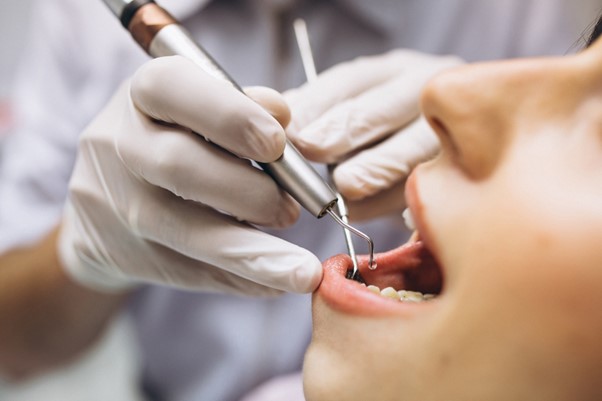Table of Contents
- What is a serious dental emergency?
- Why Do I Need an Emergency Dentist?
- What is the primary cause of most dental emergencies?
- What is the most common dental emergency?
- How do I find the best emergency dentist?
- How long does an emergency dental appointment take?
- Is a bad toothache considered a dental emergency?
- Can an emergency dentist remove teeth?
- Cracked teeth (sports injury, for example);
- Unbearable toothache;
- Facial swelling and fever caused by a dental abscess;
- Severe or unusual bleeding of the gums;
- Severe or unusual post-extraction bleeding;
- Lost dental filling that causes pain and increased sensitivity in the affected area;
- Injury to a dental implant or nearby tissue that results in inflammation and bleeding;
- Facial fractures.
What is a serious dental emergency?

All dental emergencies are not the same. Some necessitate you to consult a dentist rapidly, while others can be life-threatening and require immediate medical attention. Serious dental emergencies are:
- Severe toothache.
- Facial cellulitis.
- Dental trauma.
Why Do I Need an Emergency Dentist?
What are the benefits of having an emergency dentist on call? Here are a few reasons why it is wise to choose one:- To save your precious time.
- To relieve pain fast.
- To avoid further complications.
What is the primary cause of most dental emergencies?

It is normal to experience dental issues at some point in your life. However, what might prompt an emergency visit to the dentist, and how can you prevent it?
- Poor diet and oral hygiene habits.
- Sports trauma.
- Waiting it out for too long.
What is the most common dental emergency?
Toothache is the most common dental emergency, often caused by cavities. A common question we get is – can you go to an emergency dentist with a toothache or should you wait. Yet, sometimes it is due to infection or erupting wisdom teeth. If you notice sensitivity when consuming hot, cold, or sweet foods, it may indicate that more intense and longer-lasting pain is coming. Seeing a dentist as soon as possible is advisable if uncomfortable sensations arise in your mouth. If you experience a sudden, intense toothache, the best thing to do is to reach out to an emergency dentist. In the meantime, try avoiding cold, sugary, or hot foods to reduce discomfort. In case of swelling, place a cold compress over it to ease symptoms. Avoid sleeping on this side of your face as well. Do not place any medications (pain relievers, for example) or home remedies into the dental cavities. Direct contact of dental tissues with these substances can aggravate the condition. Remember, do not take any medication without first getting approval from your dentist. When you go to the dentist, they will determine the source of your pain and develop an appropriate treatment plan. In some cases, that could mean fillings or a root canal treatment. When more severe decay is present, tooth extraction may be necessary. To help reduce the pain and discomfort, the specialist may prescribe anti-inflammatories or antibiotics if an infection is the cause of the issue.How do I find the best emergency dentist?
- Examine their experience and the services they provide.
- Ensure that they are nearby and that their wait times are convenient.
- Evaluate the pricing and make sure you are comfortable with them.
How does an emergency dentist differ from a general dentist?
Both emergency and general dentists offer dental services to their patients, but these services are not the same. General dentists provide routine dental maintenance such as check-ups, cleaning and whitening, and restorations like fillings and crowns. On the other hand, emergency dentists provide medical assistance for severe issues such as facial injuries and trauma in instances where time is of the essence. Education for both types of dentists follows a similar path, but emergency dentists receive additional training to deal with dental emergencies. Ultimately, all general dentists can receive extra training to become proficient in offering emergency care if they want.How long does an emergency dental appointment take?
Once you arrive at the emergency dental appointment, your dentist will ask you to explain the problem in detail. How it happened and what you were doing before the incident. Additionally, they may inquire whether or not you were eating anything. After that, the dentist will examine your face and teeth and probably take X-rays. Those are not always mandatory, but most dentists want to see what is inside to gain a clear understanding of the problem before starting treatment. Usually, an emergency dental appointment lasts about an hour, though that time frame may increase depending on how severe your issue is.
Is a bad toothache considered a dental emergency?

If the discomfort is bearable and you can wait, taking a painkiller until you can see a dentist may be enough. However, if the pain does not seem to subside, increases in intensity, or spreads to your jaw and neck, you should contact an emergency dentist as soon as possible. Such cases of bad toothache are considered dental emergencies.
Severe toothache indicates that something is wrong and requires immediate medical attention. An intense toothache may be due to an injury or an extensive cavity. Do not brush it off. Reach out to an emergency dentist as soon as possible.
A tooth abscess is another dental condition causing an excruciating toothache. Tooth abscesses are generally unresponsive to painkillers, and the pain will persist until you get the proper treatment.
Can the ER do anything for tooth pain?
Generally, people believe that ERs have dentists on staff, but this is not true. When it comes to dental issues, there is only so much the ER can do for you. When deciding if you should go to the ER because of a toothache or other dental discomfort, consider the intensity of the pain. Everyone has different pain thresholds or what they find tolerable, but try to be as objective as you can. If the pain is mild, taking some over-the-counter painkillers might be enough until you make an appointment with your dentist. If the situation gets out of control and your pain is unbearable, or if you are having trouble staying conscious, you should rush to the ER. They will not be able to treat the root cause of your issue, but they will give you medications that will provide relief until you can see a dentist.What will the ER do for a tooth infection?
If you have an abscess-related dental infection, it is best to go to the emergency room if there are no emergency dentists in your area or if they are closed. Medical personnel at the ER can monitor your symptoms, even late at night, to ensure the infection does not spread to other parts of your body. They can also put you under an antibiotic treatment to contain the infection and stop it from progressing. Furthermore, the ER staff can facilitate a move to the hospital if required. A dental abscess indicates a rather serious infection in an advanced state. This type of infection causes different signs and symptoms. These symptoms include but are not limited to- Intense toothache and painful sensations around the affected tooth or in the gums that is resistant to common pain medication. The pain generally intensifies when consuming hot, cold, or hard foods;
- The affected area of the mouth and gums is characterized by redness and swelling accompanying a buildup of pus. The pus can flow into the mouth, leading to a foul taste;
- Bad breath;
- Swelling of the cheek on the side of the face where the abscess is located;
- Other common indicators of an infection such as fever, fatigue, and nausea.
Why are painkillers not helping my toothache?
Our go-to remedies for a toothache usually involve taking painkillers, but in some cases, these may not be enough. For example, with pulpitis, inflammation of the dental pulp, or dental abscess, they will have little to no effect. Under these conditions, the only option is to visit an emergency dentist that will provide the necessary treatment and alleviate the pain. If the cavity is not too deep, the doctor will fill it with dental bonding after doing their usual treatments. But if the nerve is exposed, they will need to numb it before filling the hole made by the dental drill. Modern technology makes this procedure nearly painless. If you cannot make a dental appointment yet, there are still ways to manage the acute pain caused by your “exposed” nerve.- Be careful not to let your painful tooth come into contact with anything too hot or too cold.
- Avoid lying down even if it is tempting. Instead, sit up with your head high and straight and prop pillows behind your back for support.
- Be careful not to bite down on the painful tooth. Biting on it will be hard, though, as you will feel like you cannot open your mouth more than a few centimeters.
- Rinse your mouth using anesthetic and antiseptic mouth rinses.
- Soak your aching tooth in some clove essential oil, which has calming and antibiotic effects. There are also products designed specifically for this purpose that come in kits and are ready to use.
Can an emergency dentist remove teeth?
Emergency dentists can easily remove teeth in the case of an emergency. If your tooth is too decayed to be saved or severely infected, it may be necessary to remove it. Dental extractions are standard in oral surgeries. Emergency dentists are equipped and prepared to handle many dental emergencies, with dental extraction being one of the most common. The dentist will try their hardest to save your tooth, but if that is impossible due to its state, they will have to remove it and treat the area for it to heal properly.Office Details
Name: Burlington Family Dental Centre
Address: 2025 William O’Connell Blvd, Burlington, ON L7M 4E4
Phone: (289) 797-2930

Trackbacks/Pingbacks